Magnesium is a mineral required for many reactions in our body, including protein synthesis, regulating heart rhythms, muscle and nerve function, blood pressure regulation, and blood sugar control. Most people don’t get enough magnesium each day. Continue reading for the best food sources of magnesium to boost your intake.
What does magnesium do and why is it necessary?
Magnesium plays an essential role in the function of all major organs in the body, including the brain, heart, and lungs. Magnesium is required for neurological function, muscle contraction, regulating heartbeat, and maintaining healthy bones. In addition, magnesium plays a role in energy production and helps to regulate other vitamins and minerals such as calcium, vitamin D, and potassium.
Magnesium deficiency and symptoms
Since magnesium has a role in many physiological processes, a number of symptoms can occur with deficiency. The severity of the symptoms ranges from mild to severe depending on the level of deficiency. Signs of magnesium deficiency may include poor appetite, nausea, vomiting, fatigue, and weakness. In more severe cases, muscle contractions and cramps, abnormal heart rhythm, and disruption of bone minerals can occur.
While some researchers believe that magnesium deficiency overall is relatively rare, others believe that rates of deficiency are actually increasing. It is important to note that when magnesium deficiency is recognized in a clinical setting, it is usually moderate-severe. However, less is known about the symptoms and prevalence of mild deficiency.
Low magnesium levels have also been associated with headaches and migraines, poor memory, hypertension, atherosclerosis, depression and anxiety, diabetes, heart attack, and stroke, though the role that low magnesium has in the development of these conditions is unclear.
How Much Magnesium do Canadians get in their diet each day?
An individual’s magnesium levels are difficult to determine as most magnesium is stored inside our cells or bones. Though severe magnesium deficiency is uncommon, we can get an idea about our magnesium status based on the amount we consume in our diet.
Most Canadians are consuming approximately 200-300mg/d, which is under the Recommended Daily Allowance for daily magnesium intake.
In addition, certain lifestyle factors can result in decreased levels of magnesium, including excessive consumption of caffeine, excessive alcohol consumption, heavy menstrual cycles, and high levels of exercise (high sweat rates).
How Much Magnesium Do We Need Each Day?
A Recommended Daily Allowance (RDA) has been established for Magnesium in Canada. Individual magnesium needs vary depending on age and gender. Adult males between 19-30 need 400mg/d, then the RDA increases slightly to 420mg/d for males older than 31 years of age. Adult females need 310mg between the age of 19-30, then the RDA increases to 320mg/d after the age of 31.
See the summary chart below for more details about the Recommended Daily Allowance for magnesium.
Can We Get Too Much Magnesium?
The kidneys have a large capacity for filtering out excess magnesium, so toxic magnesium intakes from food are unlikely in otherwise healthy adults. However, large doses of magnesium from supplements can have adverse effects. Most commonly, gastrointestinal upset and diarrhea. In extreme cases, more serious effects can occur. The maximum amount of magnesium that should be consumed by supplement is 350mg daily. According to Health Canada, this is the highest average daily supplement intake likely to pose no risk of adverse health effects. See the Recommended Daily Allowance table below for more details on the Upper Limit for magnesium supplementation.
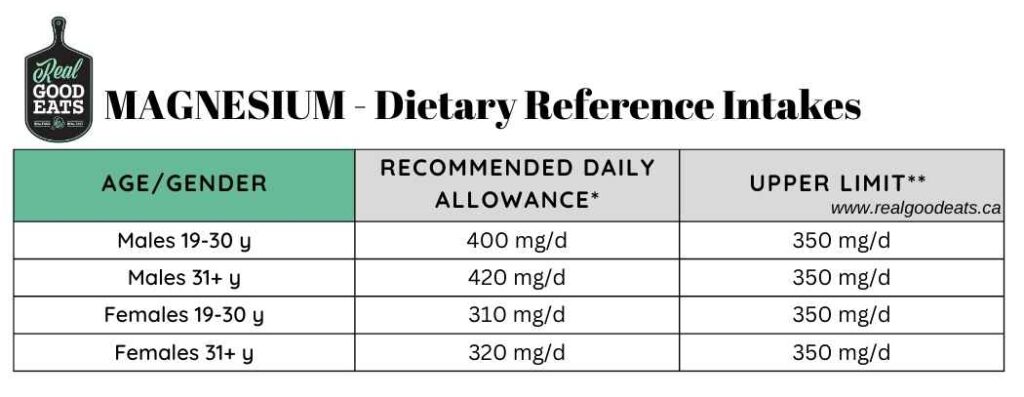
Can We Get Enough Magnesium from Food Only?
While it is certainly possible to get enough magnesium from food sources, most Canadians are not getting enough. Check out the list below for the 10 Best Food Sources of Magnesium to make sure you’re getting enough.
Be sure to check out our free PDF that includes the top 25 Best Food Sources of Magnesium. You can access it here!
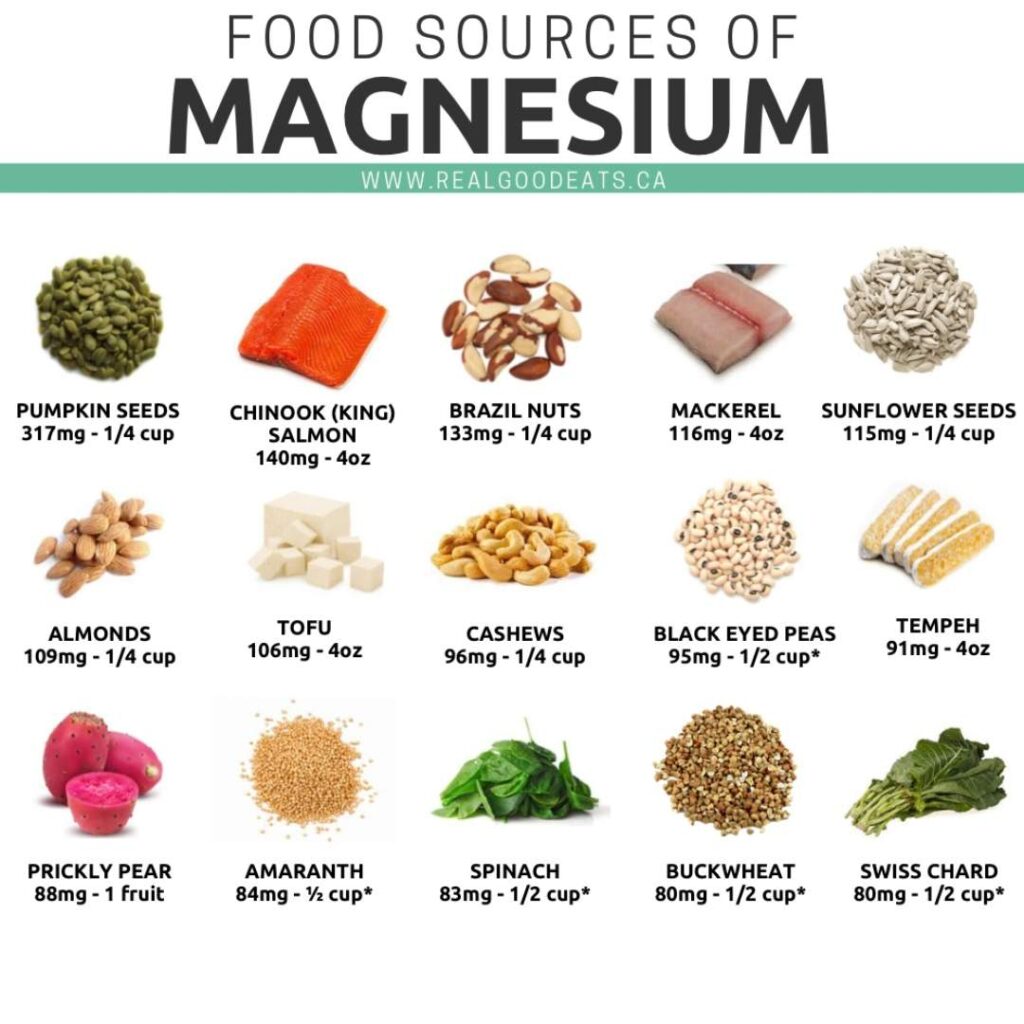
Best Food Sources of Magnesium
1. Pumpkin seeds
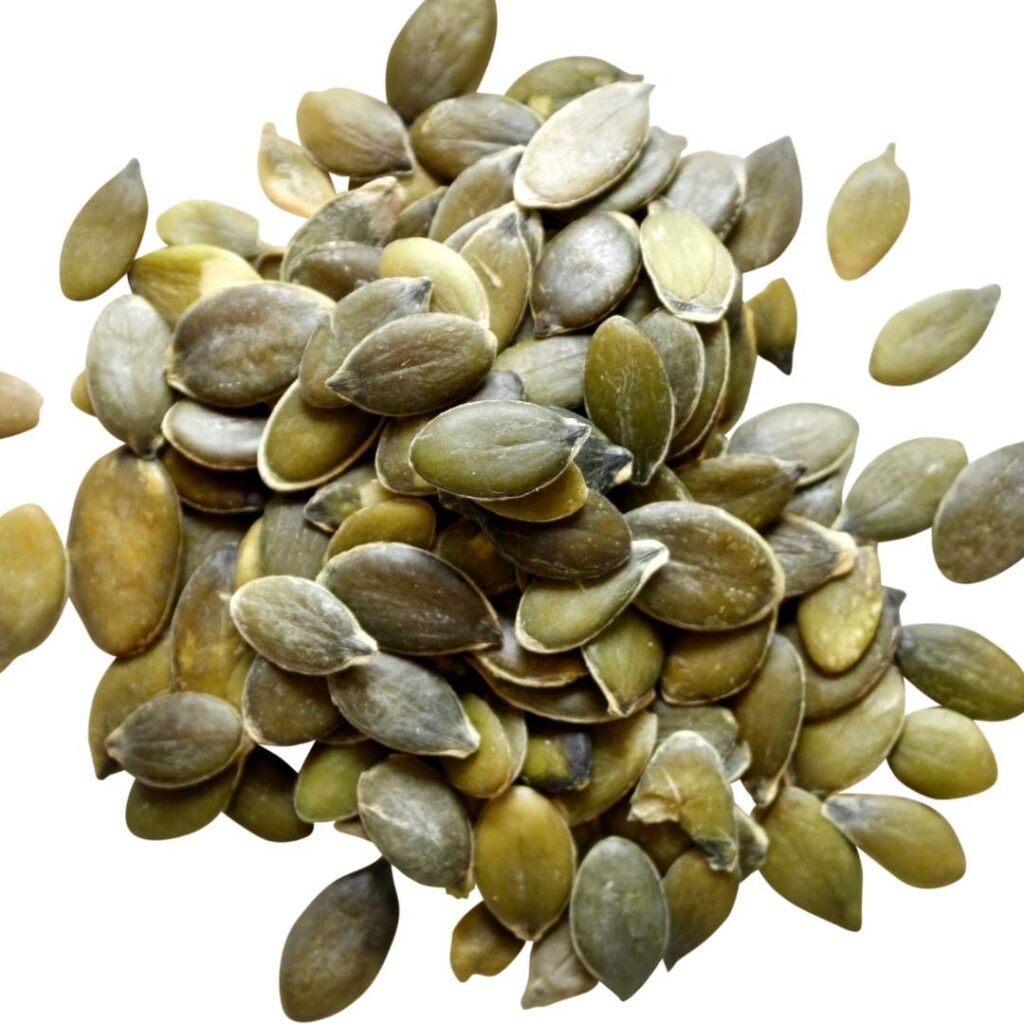
Pumpkin seeds are one of the highest food sources of magnesium, with a whopping 317mg of magnesium per ¼ cup serving. Enjoy pumpkin seeds alone as a snack, mixed with dried fruit for a nut-free trail mix, use them to top your morning oatmeal, or add them to salads.
2. Brazil nuts

Brazil nuts are a great source of magnesium, with 133mg per ¼ cup serving. Enjoy Brazil nuts alone as a snack, mix them with dried fruit and cereal for a homemade trail mix, or incorporate finely ground Brazil nuts into smoothies or your favourite muffin recipe.
3. Mackerel
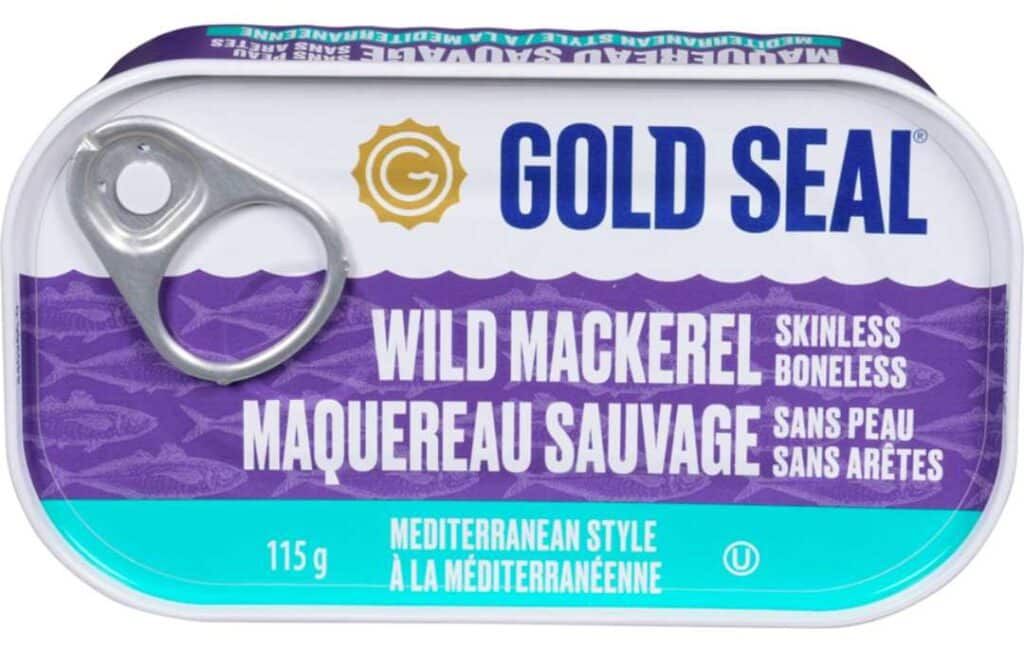
Mackerel is known as a fatty fish and is also a great source of magnesium, with 116mg per 4oz serving. Enjoy grilled, roasted, or swap canned mackerel for tuna in your next sandwich.
4. Sunflower seeds
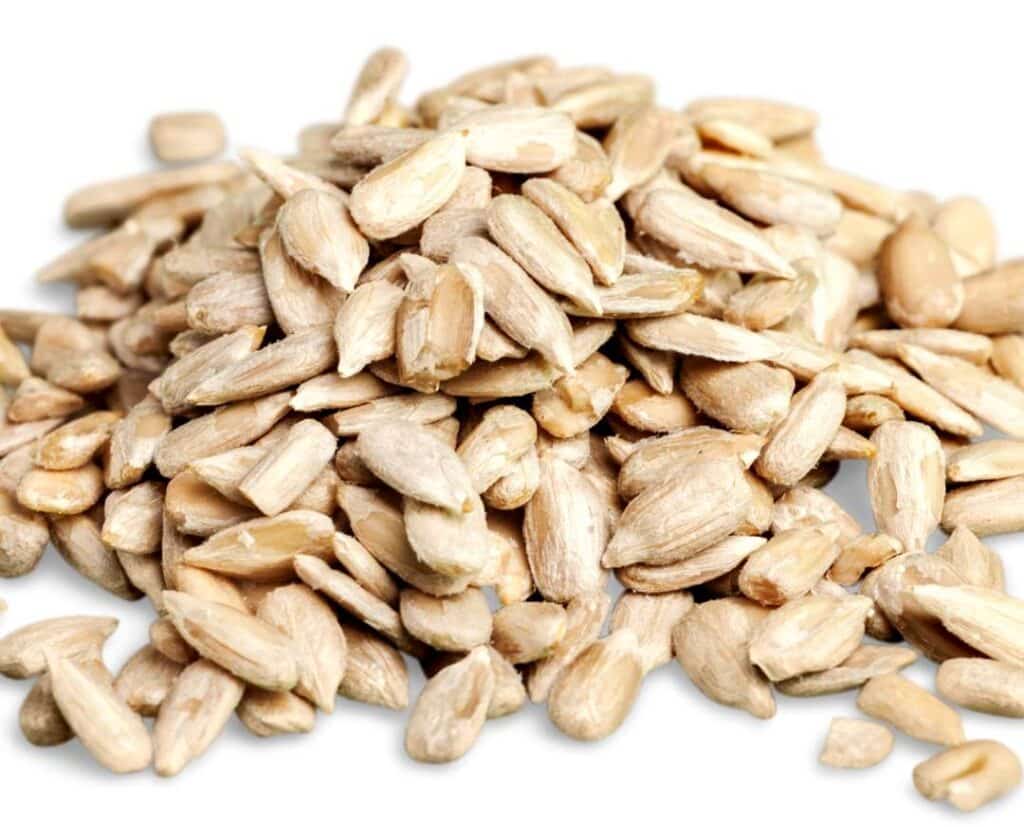
Another great source of magnesium is sunflower seeds, with 115mg per ¼ cup. Use sunflower seeds when making energy bites, sprinkle on almond butter toast or yogurt, or add to smoothies to boost your magnesium intake.
5. Almonds
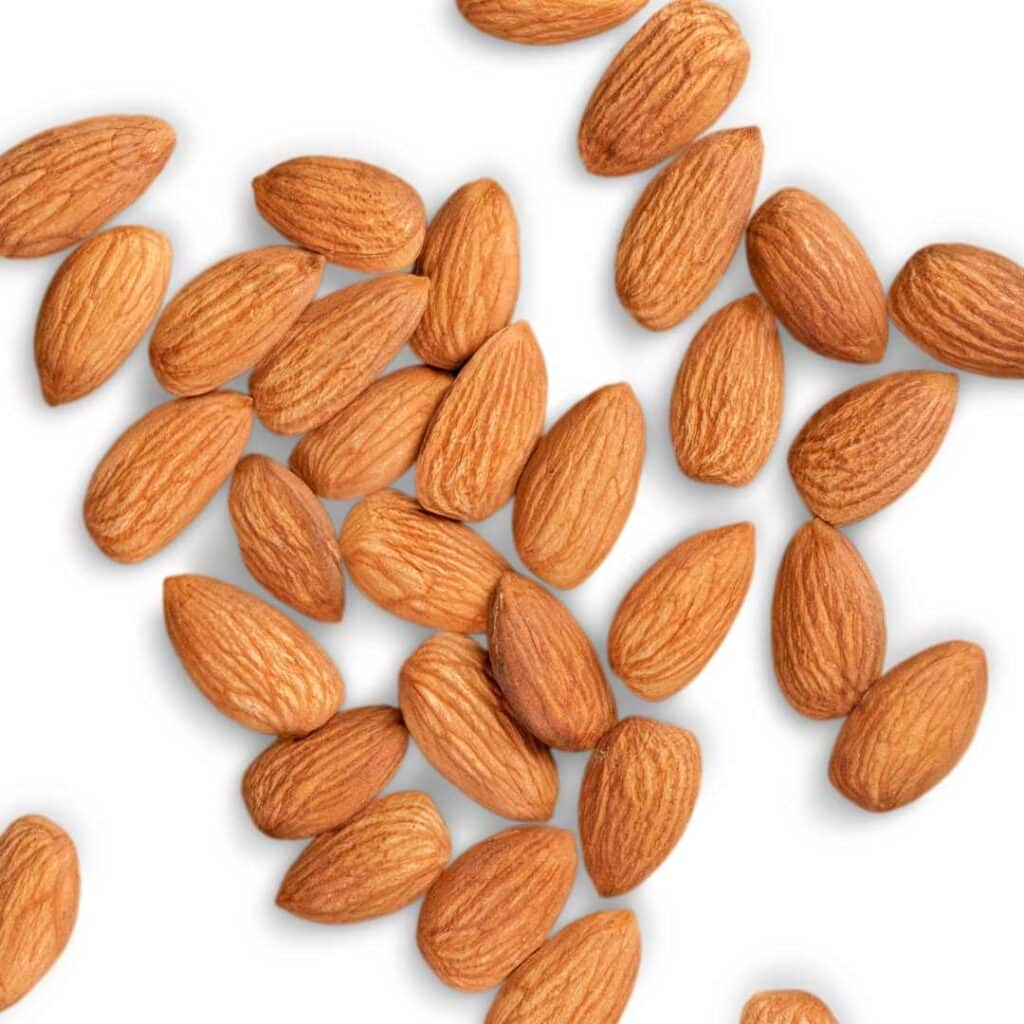
Almonds are an excellent source of heart-healthy fatty acids as well as magnesium, with 109mg per ¼ cup serving. Enjoy almonds alone as a snack, mix them with dried fruit and cereal as part of a trail mix, chop into your morning oats, or incorporate ground almonds into your next smoothie or muffin recipe.
Best Food Sources of Magnesium
6. Tofu
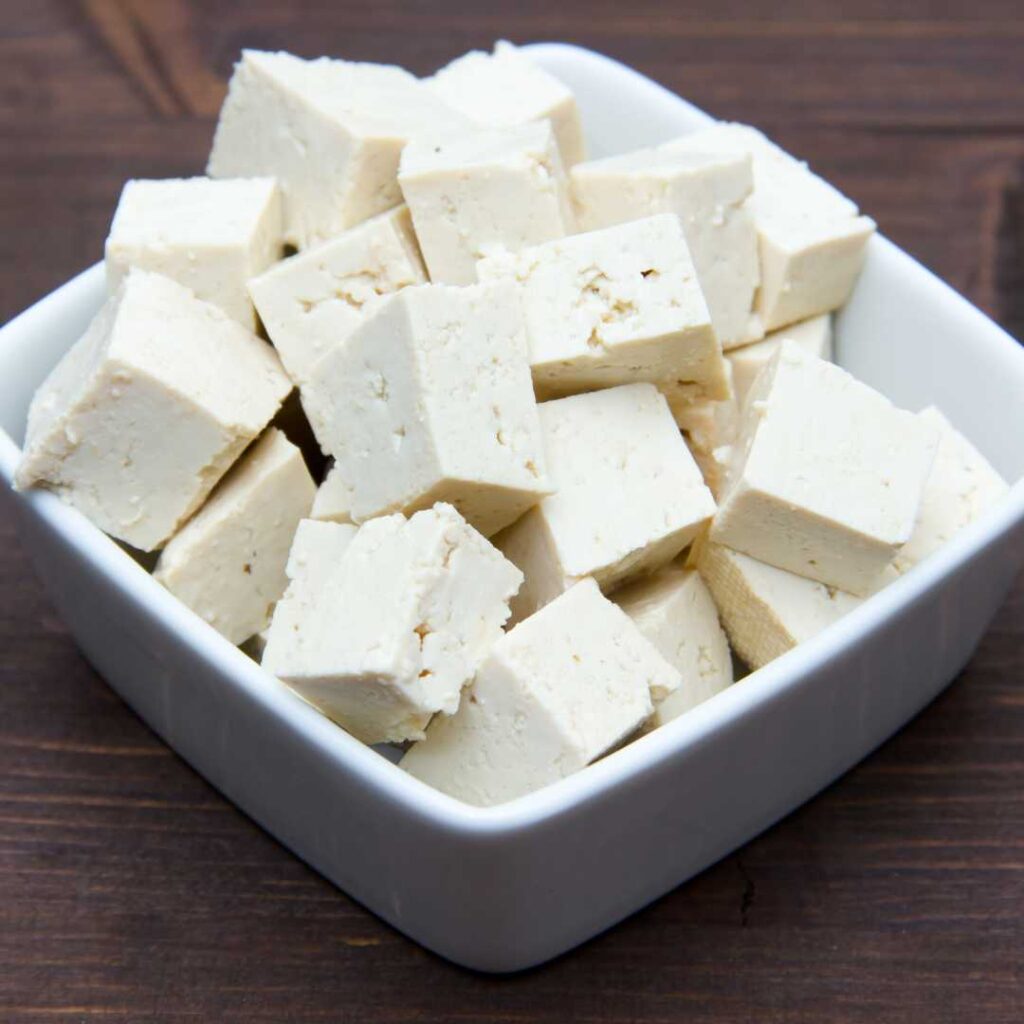
Tofu is a source of plant-based protein and contains 106mg of magnesium per 4oz serving. It is extremely versatile because it soaks up the flavours in the recipe that it’s cooked in. Try firm tofu baked or stir-fried with your favourite sauce, or blend it into pureed soup, like in this Easy High Protein Butternut Squash Soup with Tofu recipe.
7. Cashews
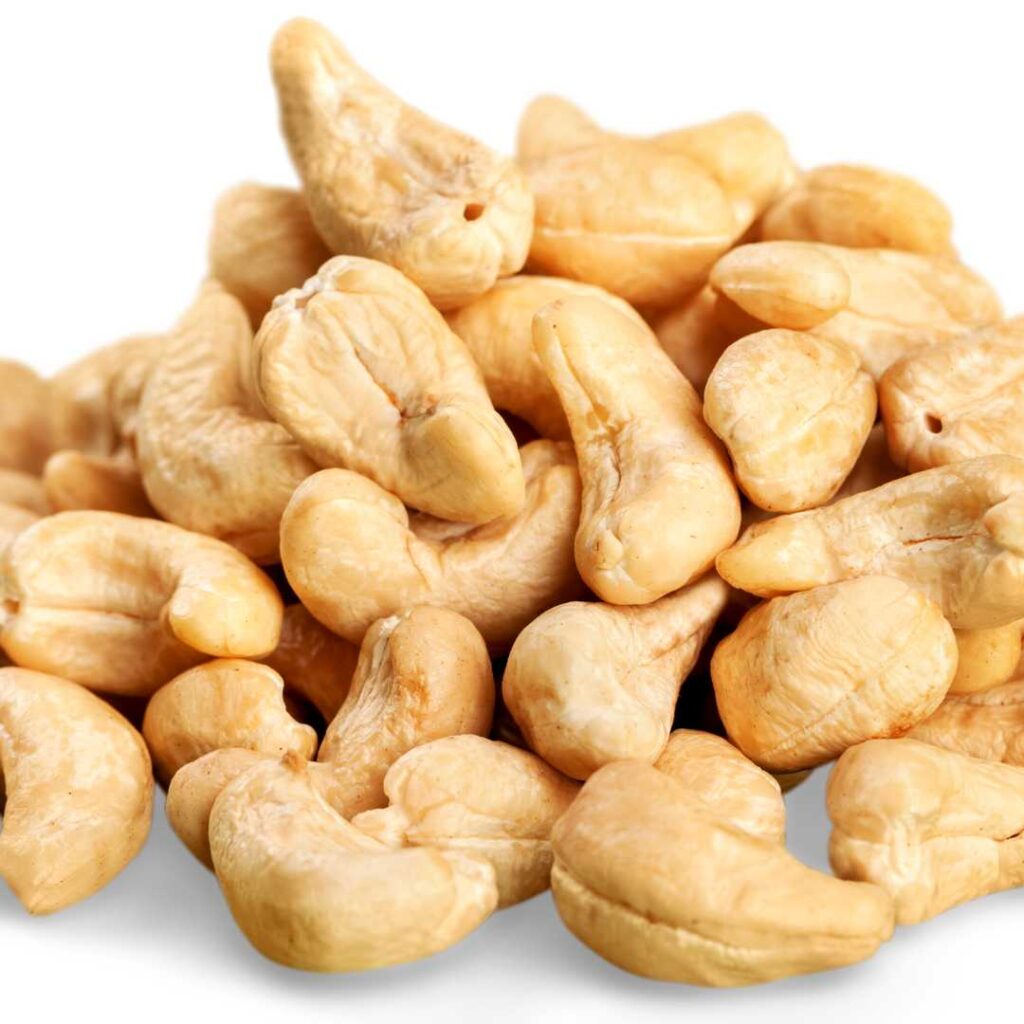
Cashews are a source of magnesium, with 96mg per ¼ cup. Enjoy cashews alone, add chopped cashews to energy bites, or use homemade cashew milk in a creamy pasta recipe.
8. Black-eyed peas
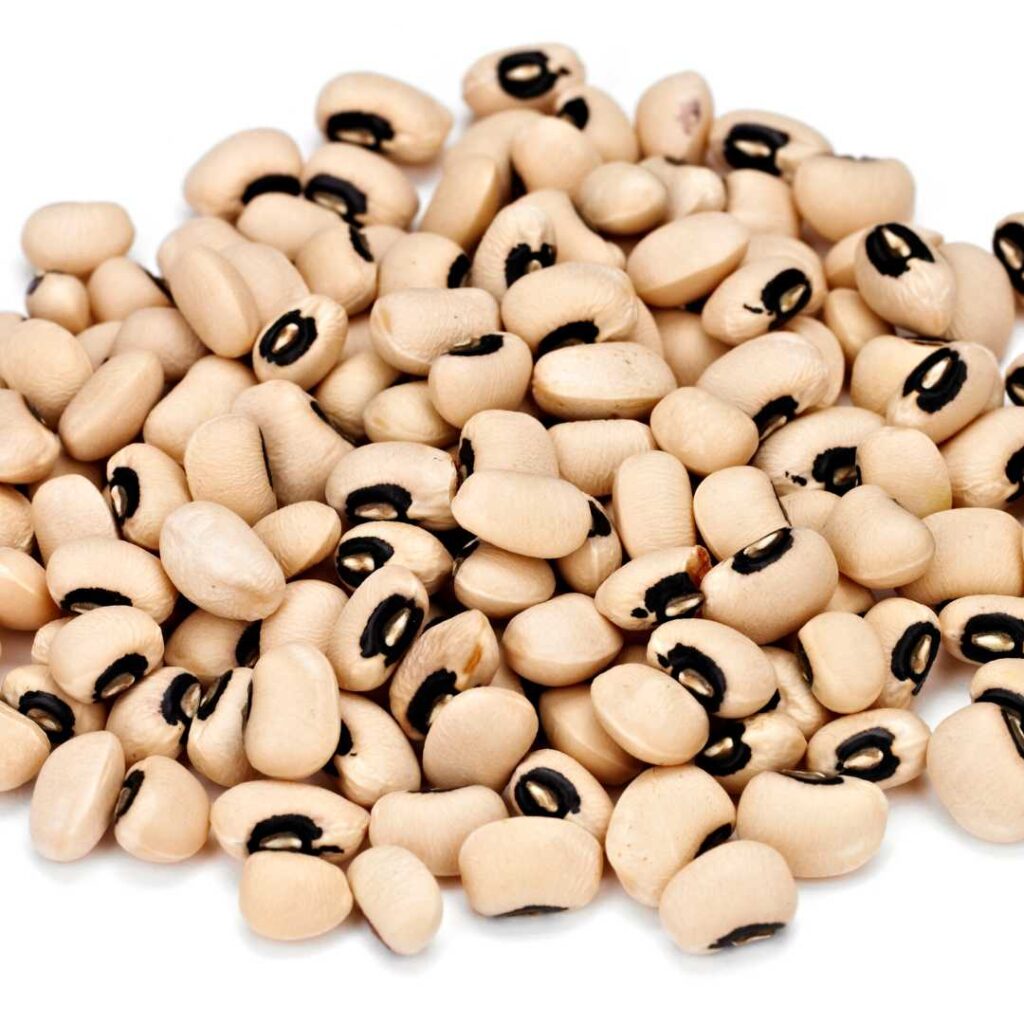
With 95mg per ½ cup serving, black-eyed peas are also a good source of magnesium. Add them to soup, pasta, or bean salad recipe to boost your intake.
9. Amaranth/buckwheat
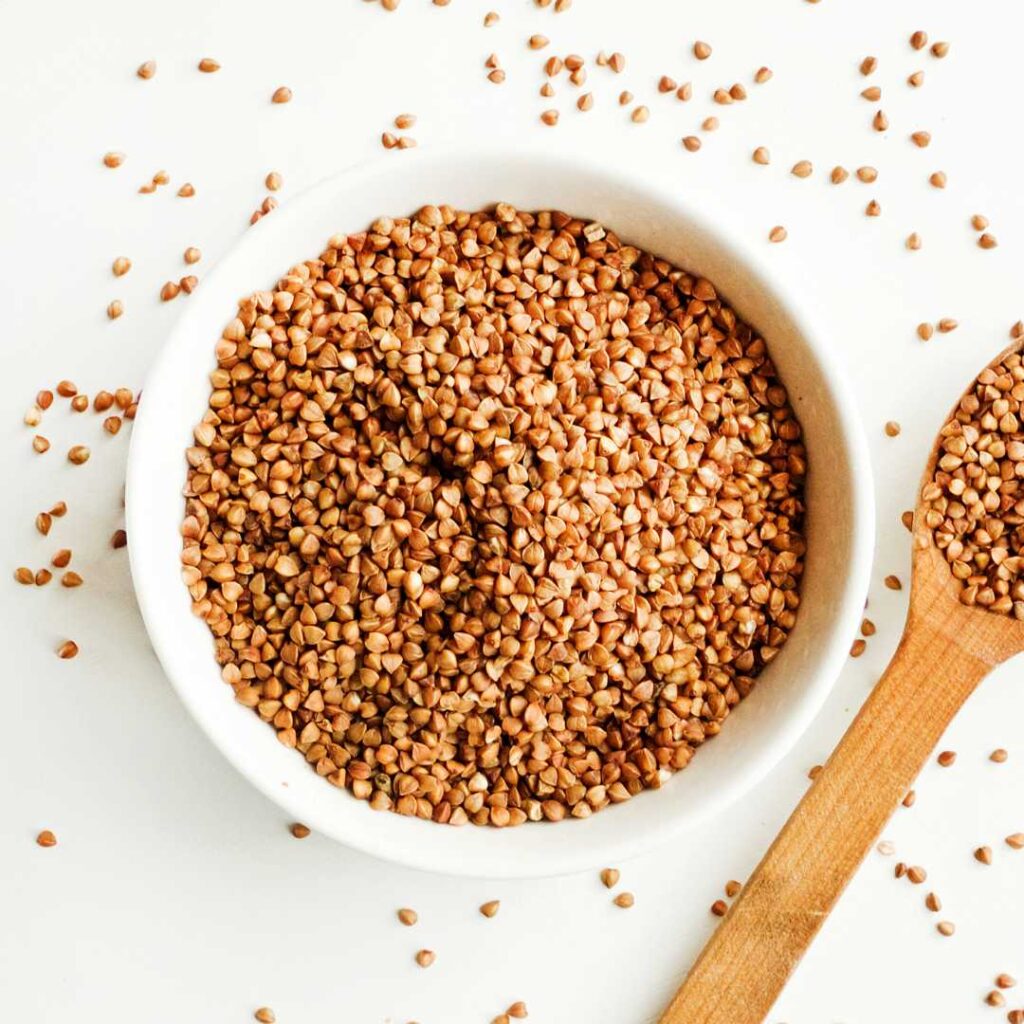
Amaranth and Buckwheat are rich sources of magnesium, providing 80-84mg of magnesium per ½ cup cooked. Include these super grains as a side dish to any meal, in a grain salad, or use them to make salmon cakes or bean patties.
10. Spinach
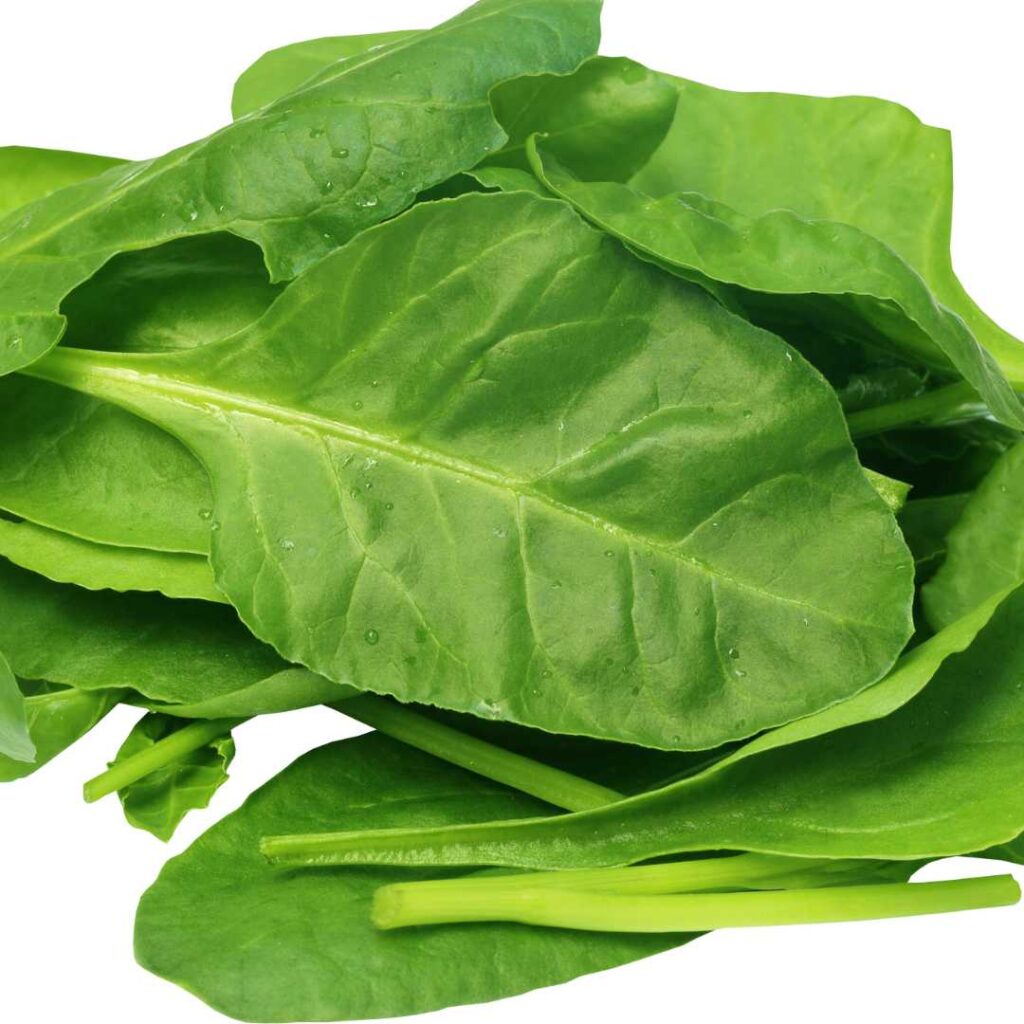
Cooked spinach is another excellent source of magnesium, with 83mg per ½ cup portion. Spinach shrinks in volume significantly when cooked, making the nutrient content more condensed. Add spinach to soup recipes, curry, or pasta to increase your intake.
Be sure to check out our free download that includes the top 25 Best Food Sources of Magnesium (preview below).
You can access it here!

Related Posts:
Best Sources of Plant-Based Protein
Sources:
Baaij, J. H. F. de, Hoenderop, J. G., & Bindels, R. J. (2015) Magnesium in Man: Implications for Health and Disease. Physiological reviews, 95 (1), 1-46.
Ross, A. C. (2014). Modern nutrition in health and disease. (11th edition). Wolters Kluwer Health/Lippincott Williams & Wilkins.
Musso, C. G. (2009). Magnesium metabolism in health and disease. International Urology and Nephrology, 4 (12), 357-362.
Canada, H. (2006, June 29). Government of Canada. Canada.ca. Retrieved March 29, 2023, from https://www.canada.ca/en/health-canada/services/food-nutrition/healthy-eating/dietary-reference-intakes/tables/reference-values-elements-dietary-reference-intakes-tables-2005.html

